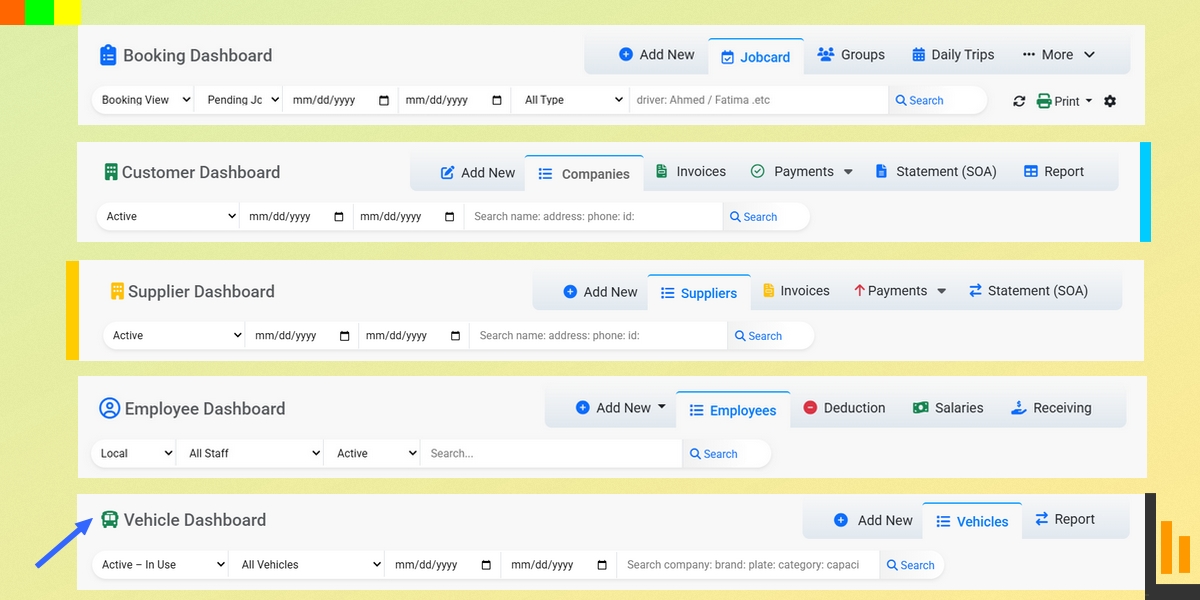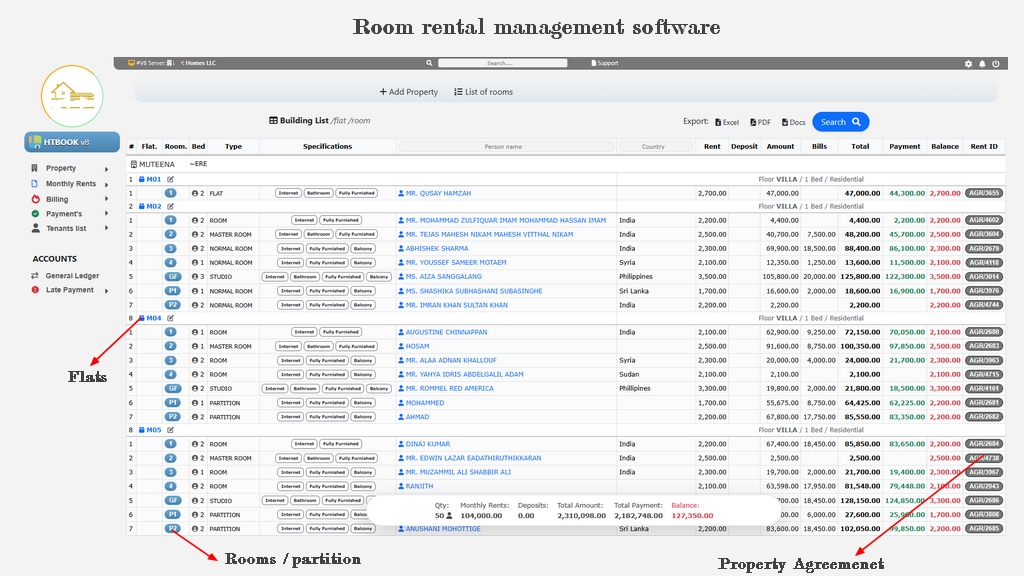
vehicle-booking-system-vs-manual-booking-which-is-better
Explore the key differences between using a digital vehicle booking system and manual booking methods. Learn which approach offers better speed, explre accuracy, convenience, and control for transport companies aiming to improve eff...
For any transport business, the booking process is the first point of contact with a customer and the backbone of your operations. In today's fast-paced world, a key decision owners and managers face is whether to stick with traditional manual booking methods or invest in a modern vehicle booking system. This isn't just about technology; it's about efficiency, accuracy, and growth.
This article provides a clear, side-by-side comparison to help you decide which method better serves your business goals, customer expectations, and bottom line.
Comparison Between Vehicle Booking System and Manual Booking
| Feature | Manual Booking | Digital Vehicle Booking system |
| Booking Process | Customer calls/emails, back-and-forth communication to confirm details, price, and availability. | 24/7 online booking portal. Customer enters details, sees real-time availability and price, and books instantly. |
| Error Rate | High. Relies on staff correctly hearing, noting, and transferring details across logs and sheets. | Very Low. Automated data entry minimizes human error. Details flow directly into the dispatch schedule. |
| Dispatch Efficiency | Slow. Requires manually matching trips to available drivers via phone or radio, often leading to suboptimal assignments. | Automated & Intelligent. System instantly assigns the nearest or most suitable driver based on location, vehicle type, and traffic. |
| Customer Experience | Inconsistent. Dependent on staff availability. Guests may be on hold or wait for email replies | Professional & Transparent. Immediate confirmation, automated updates, and live tracking provide a seamless, modern experience. |
| Data & Reporting | Limited and time-consuming. Requires manually compiling figures from spreadsheets, offering little actionable insight. | Comprehensive & Real-Time. Automated dashboards show performance metrics, popular routes, peak times, and driver efficiency instantly. |
| Scalability | Difficult. More bookings mean more staff, phones, and chaos. Growth often leads to service breakdowns. | Easy. The system handles an increase in volume without proportional increases in administrative work or errors. |
Real-Time Availability:
| Point | Explanation |
| Manual checking is slow | Staff must check papers, make calls, or view spreadsheets to confirm vehicle availability. |
| Time consuming and error prone | This process takes time and may lead to mistakes like double bookings. |
| System shows availability instantly | A vehicle booking system shows live availability updates immediately. |
| Instant updates after booking | When a vehicle booked, returned or becomes available, the system updates in real time. |
| Helps decision making | Staff and customers can make quick, correct decisions with accurate data. |
| Prevents overbooking | Live updates ensure better fleet use and prevent assigning the same vehicle twice. |
What Your Business Really Needs
Choosing the right method depends on evaluating your
business against several critical factors:
1. Operational Efficiency & Accuracy
- Manual Booking is inherently inefficient. The constant back-and-forth communication, manual entry into ledgers or spreadsheets, and phone-based dispatch consume immense staff hours and are prone to costly errors like double-booking or incorrect addresses.
- A Booking System automates the entire workflow. From the moment a booking is made online, the information is perfectly captured and pushed to the dispatch dashboard and driver app. This eliminates redundant data entry, reduces errors by over 90%, and frees your staff to focus on customer service and exception management.
2. Customer Experience & Professionalism
- Manual Methods can frustrate modern customers who expect instant service. Missed calls, busy lines, and delays in email response create a poor first impression.
- An Automated System meets modern expectations. It offers a 24/7 self-service booking option, sends automatic confirmation and reminder messages (SMS/Email), and provides a live tracking link. This builds trust, reduces customer anxiety ("Where is my driver?"), and significantly elevates your brand's professionalism.
3. Business Growth & Scalability
- Scaling with Manual Processes requires hiring more dispatchers and phone operators. Growth often results in a decline in service quality as the complexity of coordination increases exponentially.
- Scaling with a Software System is seamless. The platform can handle a surge in bookings without additional administrative overhead. Features like fleet analytics also help you identify growth opportunities, optimize routes, and make data-driven decisions to expand profitably.
4. Cost Analysis: True Cost of Ownership
- Visible Costs of Manual Booking: Lower upfront cost (just phones and paper). However, high hidden costs include salaries for multiple dispatchers, revenue lost to errors and inefficiencies, and the opportunity cost of missed bookings after hours.
- Investment in a Booking System: A clear monthly or annual subscription fee. This investment is directly offset by major cost savings: reduced need for dispatch staff, lower fuel costs from optimized routing, increased revenue from 24/7 bookings and reduced errors, and valuable time reclaimed for business development.
For any transport business serious about reliability, customer satisfaction, and growth, the evidence is clear. While manual booking might seem sufficient for a very small, low-volume start-up, it quickly becomes a bottleneck.
A modern vehicle booking system is not merely a luxury; it is a critical operational tool. It provides the automation, accuracy, and insight needed to compete effectively, reduce operational headaches, and build a reputable, scalable brand. The return on investment is typically realized through significant time savings, error reduction, and enhanced customer loyalty.





